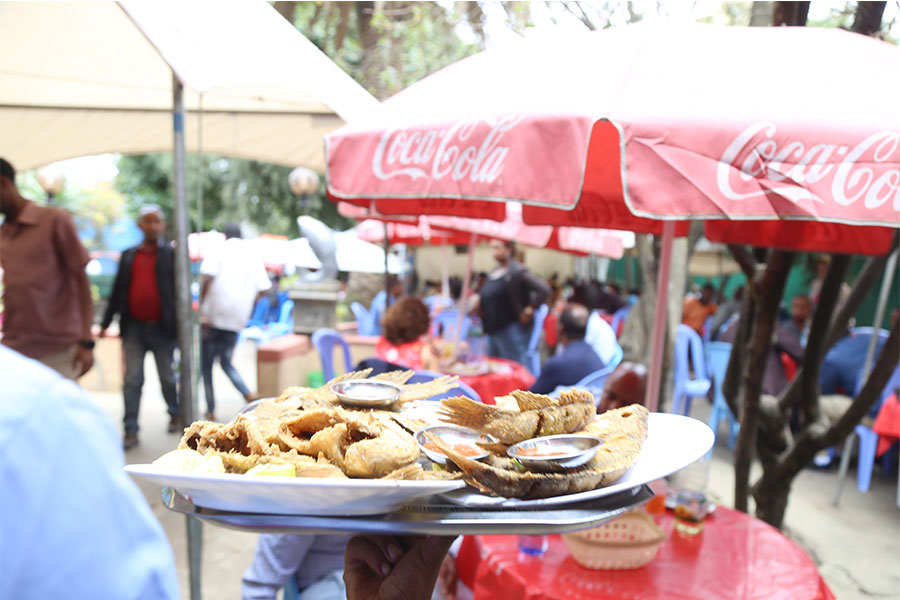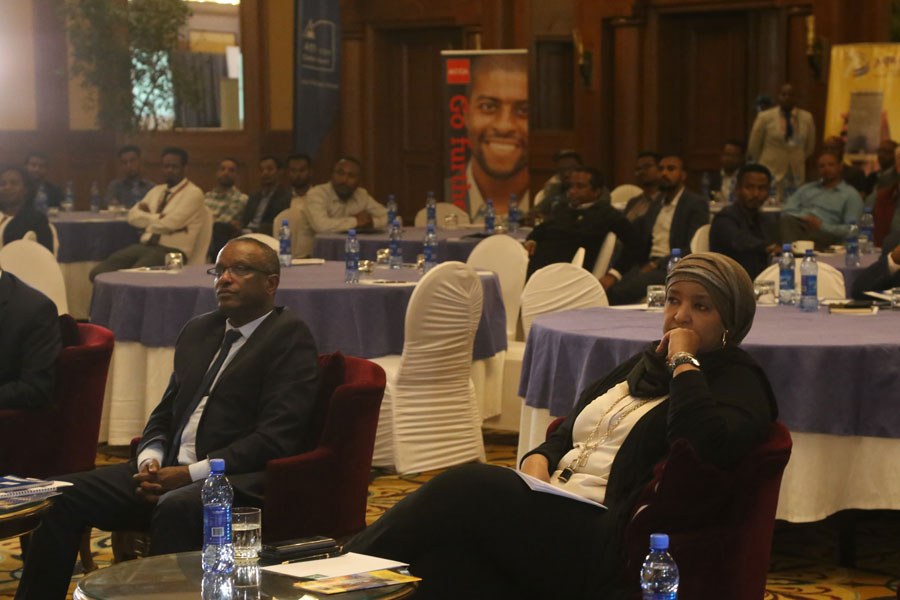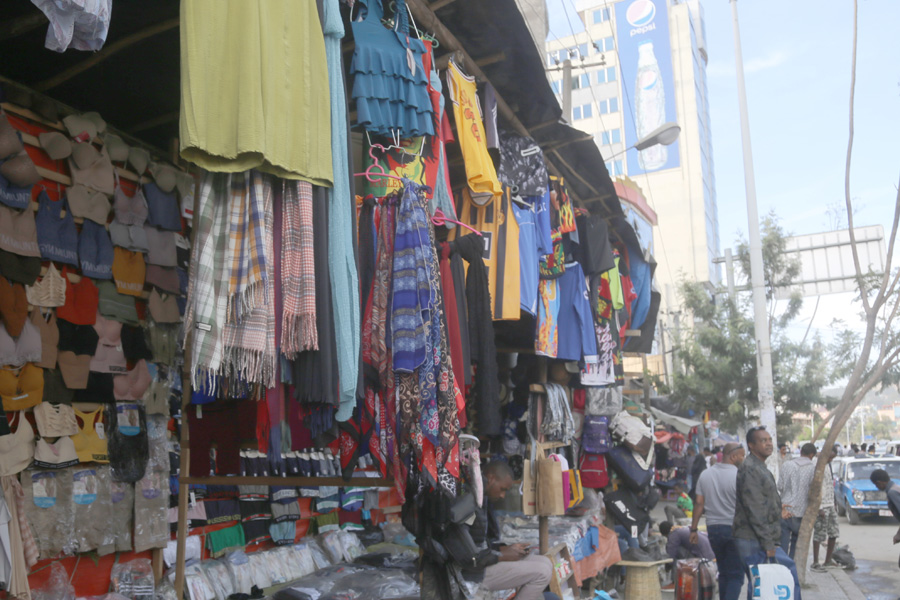
Commentaries | Jun 22,2019
Jun 3 , 2023
By Eden Sahle
I am acquainted with several young parents who decided to adopt children from non-governmental institutions.
The process involved a six-month rigorous screening and selection for adopting the infants. The prospective parents were only allowed to choose the gender of the infant they would adopt.
Their emotional and financial preparedness to take sole custody and provide a loving home for four abandoned infants was an inspiring journey to witness. They held jubilant celebrations to officially welcome them into the families, while the infants who were in a fragile state thrived emotionally, mentally and physically. They eventually bonded with their affable parents and siblings.
I have friends from a similar background whose journey is a testament to the unbreakable bond. Their parents documented how they found them in critical condition, abandoned and sick as babies. However, they were nurtured the same as biological children, attending the same schools and receiving the same privileges. They refer to them as their birth parents while they have accepted their biological parents as relatives.
When adoption is discussed, it is common for people to ask if the adoptive parents have their own biological children, which can perpetuate negative stereotypes.
Even when foster parents fully embrace the children as their own, others may struggle to accept them as part of the family. The label of "adopted" can remain in the minds of the extended family, despite strong bonds among the nuclear family. It is unfairly seen as taboo and not fully understood by society.
It is important for society to recognise and support all types of families. Couples who are sterile or experienced miscarriages create a loving family, like those with biological children- raising children who are adored deeply. These parents should be celebrated for their love and commitment to their children rather than criticised.
Adopting a child can bring immense joy and fulfilment to both the child and the parents. It provides a loving and stable environment for children who may have otherwise faced a difficult future.
Foster children are able to form strong bonds with their families and are grateful for the opportunity to have a home and envision a future. They overcome feelings of abandonment and form a strong sense of identity with their newfound home.
While adoption may not be the right choice for every foster child, it can be a viable option for those who are looking for a permanent home and family. Social workers say many grow up happy and well-adjusted regardless of adoption as adolescents. They have a lasting close relationship with their caregivers, are secure in their identities, and can navigate life.
Growing up within a family allows children to exhibit optimism and confident social behaviours. The parent-child relationship is a unique bond that brings joy and strengthens a child's social, physical, mental, and emotional health.
While the wide acceptance of adoption is yet to be widely seen in Ethiopia, some communities have embraced the practice and given children in need a devoted home. Despite having biological children, these families are stepping forward to provide for orphans and the abandoned.
It is truly gratifying to witness children grow up in a loving family. I have had the pleasure of observing friends who have adopted children and initially thought that they had positively impacted the children's lives. However, I soon realised the children's unconditional love exuberantly changed my friends' lives.
Unfortunately, many are missing out on this experience for lack of awareness. However, foster parents and social workers should create awareness so more families can experience the delight.
It is important for nongovernmental agencies to continue advocating for adoption as a viable option for families looking for expansion or nurturing environment for a child in need.
PUBLISHED ON
Jun 03,2023 [ VOL
24 , NO
1205]

Commentaries | Jun 22,2019

Featured | Jan 07,2023

Viewpoints | Jun 29,2024

Agenda | Apr 13,2019

Commentaries | Feb 20,2021

Commentaries | Feb 20,2021

Commentaries | Jun 17,2023

Commentaries | Apr 01,2023

Fortune News | Oct 15,2022

Featured | Feb 11,2023

My Opinion | 131499 Views | Aug 14,2021

My Opinion | 127855 Views | Aug 21,2021

My Opinion | 125833 Views | Sep 10,2021

My Opinion | 123463 Views | Aug 07,2021

Dec 22 , 2024 . By TIZITA SHEWAFERAW
Charged with transforming colossal state-owned enterprises into modern and competitiv...

Aug 18 , 2024 . By AKSAH ITALO
Although predictable Yonas Zerihun's job in the ride-hailing service is not immune to...

Jul 28 , 2024 . By TIZITA SHEWAFERAW
Unhabitual, perhaps too many, Samuel Gebreyohannes, 38, used to occasionally enjoy a couple of beers at breakfast. However, he recently swit...

Jul 13 , 2024 . By AKSAH ITALO
Investors who rely on tractors, trucks, and field vehicles for commuting, transporting commodities, and f...

Jun 28 , 2025
Meseret Damtie, the assertive auditor general, has never been shy about naming names...

Jun 21 , 2025
A well-worn adage says, “Budget is not destiny, but it is direction.” Examining t...

Jun 14 , 2025
Yet again, the Horn of Africa is bracing for trouble. A region already frayed by wars...

Jun 7 , 2025
Few promises shine brighter in Addis Abeba than the pledge of a roof for every family...

Jun 29 , 2025
Addis Abeba's first rains have coincided with a sweeping rise in private school tuition, prompting the city's education...

Jun 29 , 2025 . By BEZAWIT HULUAGER
Central Bank Governor Mamo Mihretu claimed a bold reconfiguration of monetary policy...

Jun 29 , 2025 . By BEZAWIT HULUAGER
The federal government is betting on a sweeping overhaul of the driver licensing regi...

Jun 29 , 2025 . By NAHOM AYELE
Gadaa Bank has listed 1.2 million shares on the Ethiopian Securities Exchange (ESX),...